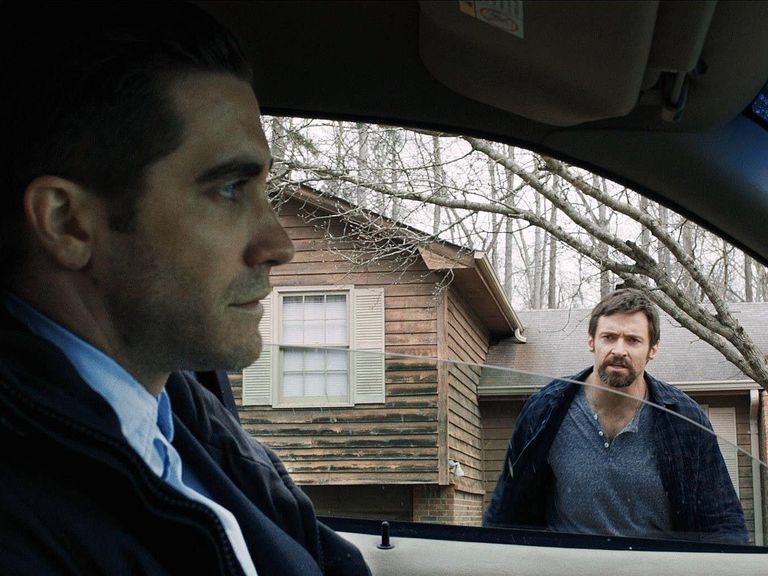Are you in the mood for gloom? Because ten years ago, Canadian director Denis Villeneuve made the perfect film for you with Prisoners. It is Pennsylvania at Thanksgiving, grey roads, grey skies. Two girls, Anna and Joy, go missing while playing in the suburbs near a shady-looking RV. Talented but risk prone detective Loki (played by Jake Gyllenhaal) is on the case, which involves local paedophiles and priests. Anna’s father, Keller Dover (Hugh Jackman), very much not a policeman, obsesses over a suspect Alex (Paul Dano) to the point where he engages in criminal activity himself (he reaches this point fairly quickly). There are twists: some instantly satisfying and a few which take a little longer to unravel and are (consequently more rewarding). But the greatest surprise is Jackman, with no singing, dancing, or spandex suit in sight.
Prisoners was Villeneuve’s first full-length film since his widely-praised Incendies in 2010. That latter project, a harrowing tale in which a brother and sister search for their father in a war torn country, is very different to Prisoners but the director’s trademarks are present in both films. Even though they are long, it is almost impossible to watch a Villeneuve project and not feel any satisfaction afterwards. He nearly always provides a final-act twist, bakes in enough layers to contemplate with your friends (online and off!), and pulls out good to great performances from everyone involved.
The film also marks Villeneuve’s first collaboration with British cinematographer Roger Deakins, a fruitful collaboration which continued with Sicario and Blade Runner 2049 and lends Prisoners a classy, artful sheen even when the material falls short. And like Incendies, Prisoners involves stand-out scenes about research – characters dig deep in archives, they desperately search for meaning on scrap pieces of paper. Some of the best sequences involve the police methodically gathering evidence, a neat and obsessive counterpoint to the unknown which, like a wintry mist, engulfs the film.
Like a lot of good thrillers, Prisoners is about faith. How far can your convictions drive you? If you are sure you are right about something or someone, and everything and everyone is telling you are wrong, do you continue? How could you not? A recurring maze motif, if not exactly subtle, is effectively creepy, as these characters chase and chase and chase. The film approaches in every character – from the ostensible goodies to the baddies (that latter exploration is a little undercooked) – but it’s Jackman’s haunted, off-the-rails maniac who has the most fun here.
His trademark charm or superhero power are replaced by desperation. His storyline is hard to watch, as he takes Dano’s character, uh, prisoner and begins a brutal interrogation (and Villeneuve does little to ease viewers’ discomfort). It has shades of other good Jackman performances, particularly the almost-great magician in Christopher Nolan’s The Prestige and even the tortured soul of Jean Valjean in Les Misérables. In Prisoners, you watch Jackman go there and then keep going, not stopping until he too is a… prisoner of his own making (this film is good, though a little on-the-nose with its themes).
What is Jackman’s defining role? For many, especially those who were once teenage boys (this writer included), it will be as Wolverine. The super buff, razor sharp mutant was integral to the 2000s trilogy and returned for the updated series in the 2010s. He also starred in three standalone films, 2009’s serviceable X-Men Origins: Wolverine and 2013’s more memorable The Wolverine and 2017’s thoughtful Logan. In 2017, his assured performance as showman and entrepreneur P. T. Barnum in the staggeringly popular musical The Greatest Showman won over new fans from all age groups. Have you ever played “This Is Me” in a car? Toddlers and great aunts erupt in unison. Prisoners grossed over $120 million at the worldwide box office. For a little scale, the least financially successful X-Men film starring Jackman, X-Men Origins: Wolverine, grossed over $370 million.
Unfortunately for Jackman, it’s Gyllenhaal who gets the best scene in the film, a climactic rescue sequence, in which he rushes one of the kidnap victims to the hospital with a brain injury. He also gets the second best scene: confronting a suspect and then opening box after box of live snakes in his living room. Luckily, Jackman is in the third best scene, the film’s conclusion in which Loki returns to the crime scene where Dovers is now trapped. The film is right to finish here, highlighting the pair’s fractious relationship, with one man’s fate in another man’s hands (it is obvious what is likely to happen, but finishing on anything too definitive would have betrayed the film’s ethos). We know Gyllenhaal, one of finest actors of his generation, can do this. He’s played obsessive since Donnie Darko right through to Nightcrawler. Jackman’s turn is not only the surprise, but the backbone of the film: he drives everything forward, and it only stops when he does.
Henry Wong is a senior culture writer at Esquire, working across digital and print. He covers film, television, books, and art for the magazine, and also writes profiles.













